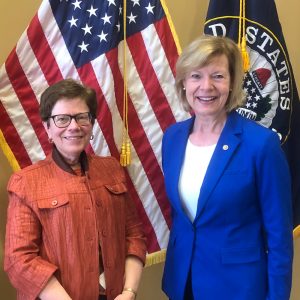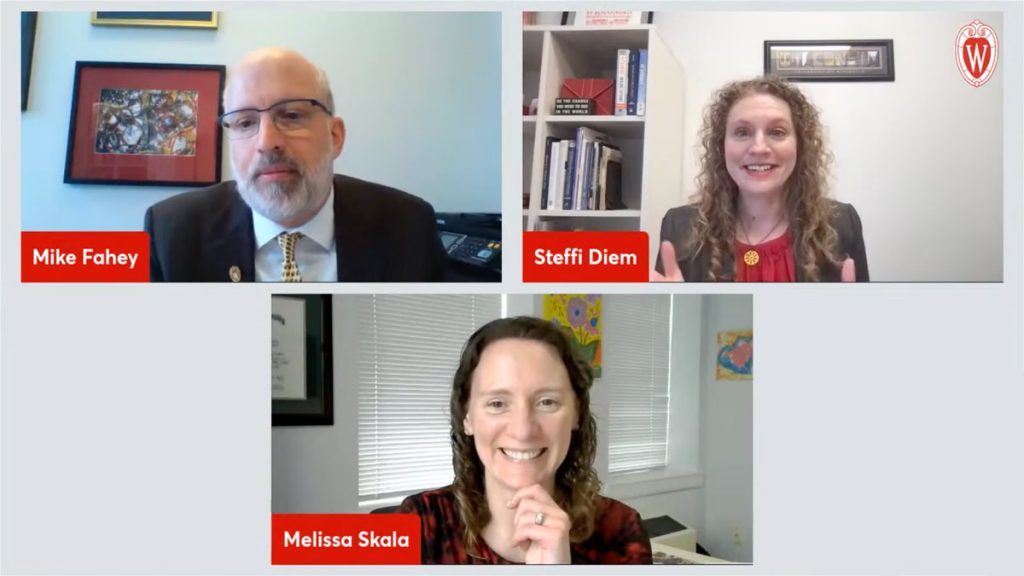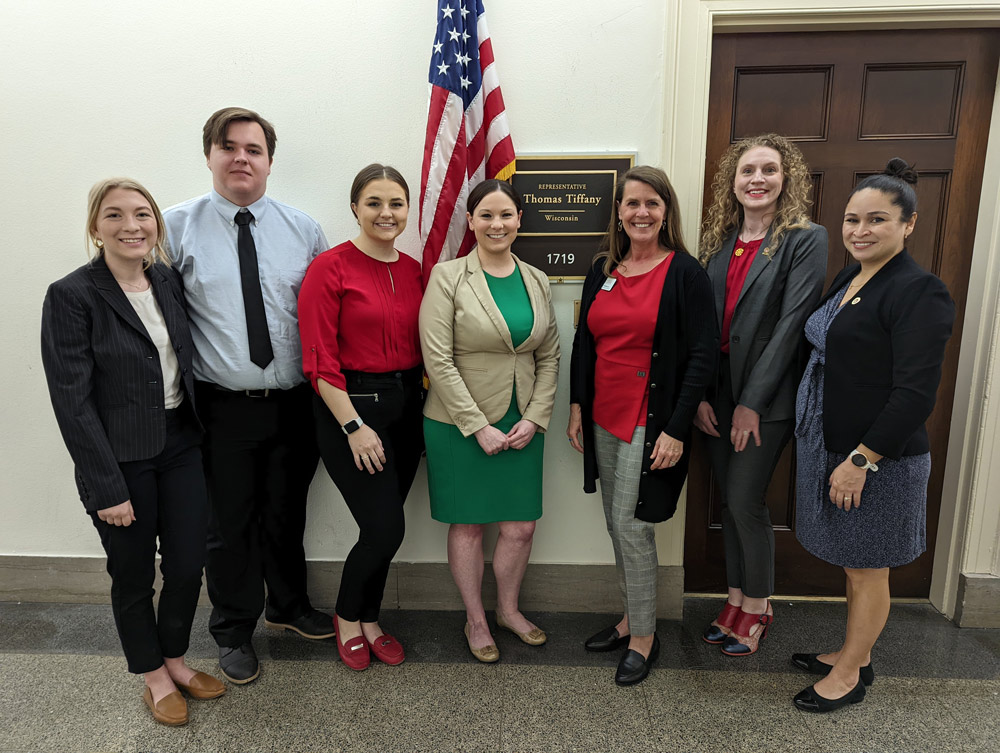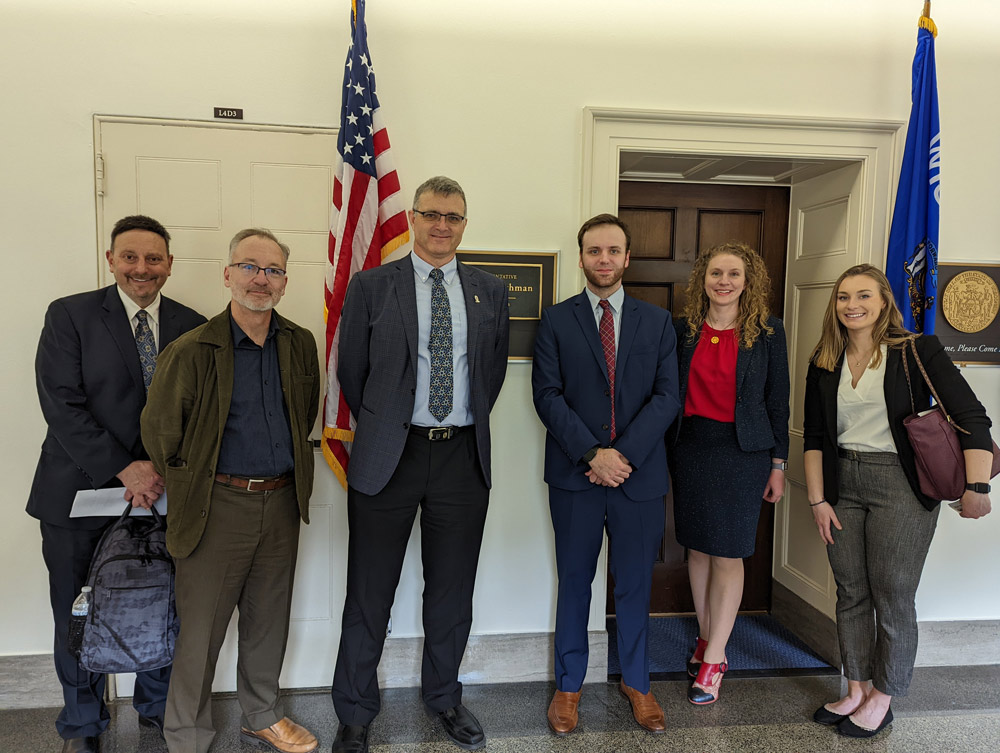Fiscal Year 2023 Budget Request
President Joe Biden recently unveiled his Fiscal Year (FY) 2023 budget. The $5.8 trillion request includes $769 billion for nondefense discretionary programs (5.3 percent above FY 2022) and $813 billion for discretionary defense spending (4 percent above FY 2022).
While the president’s budget is an important document that highlights the administration’s priorities, Congress will ultimately determine what programs to fund and at which levels. The House and Senate have already begun congressional hearings to consider the president’s budget request, and in the coming months lawmakers will draft and approve the 12 individual spending bills. Final passage of all bills is unlikely to occur until after the midterm elections in November.
Below are a few highlights of the FY 2023 budget proposal that may be of interest to the campus community.
| Federal Agency/Program | FY 2022 | President’s FY 23 Proposal | % Change |
|---|---|---|---|
| Department of Agriculture Agriculture and Food Research Initiative |
$445 million | $564 million | 26.7% |
| Department of Education Pell Grant Maximum Grant |
$6,895 | $8,670 | 25.6% |
| Department of Education Title VI International Education Program |
$81.7 million | $78.2 million | -4.3% |
| National Institutes of Health | $45.0 billion | $54.49 billion | 21.1% |
| National Science Foundation | $8.84 billion | $11 billion | 18.8% |
| NASA Science Mission Directorate |
$7.62 billion | $7.99 billion | 4.9% |
| Department of Energy Office of Science |
$7.48 billion | $7.8 billion | 4.3% |
| Department of Defense Basic Research |
$2.76 billion | $2.38 billion | -14% |
| National Endowment for the Humanities | $180 million | $200.7 million | 11.5% |
More information on the president’s budget request will be shared in the Budget & Appropriations section of this website in the coming days.
Chancellor Blank Visits Capitol Hill

University of Wisconsin–Madison Chancellor Rebecca Blank recently visited Washington to meet with members of Wisconsin’s congressional delegation. During meetings at the Capitol, she thanked members for supporting the recently passed government spending bill that funds many UW priorities from student financial aid programs to federal research agencies. Chancellor Blank also encouraged lawmakers to support doubling the Pell Grant to help students and urged them to work together to pass a compromise innovation and competitiveness bill that would dramatically increase research and development funding and create regional technology and innovation hubs.
Competitiveness Legislation Advances in Congress
The House and Senate both passed formal motions to go to conference on a China competitiveness bill. Congressional leaders named the conferees yesterday, and Sen. Tammy Baldwin, Rep. Tom Tiffany, and Rep. Scott Fitzgerald from the Wisconsin delegation were included.
Both the House and Senate have passed competing innovation bills that provide a strong path forward to protect and advance the U.S. science and technology enterprise. Provisions in the bill would help the U.S. maintain our global scientific and economic leadership. UW–Madison supports the bipartisan efforts to date to craft legislation that recognizes the fundamental role science and technology plays in our nation’s leadership.
In anticipation of the conference negotiations, many higher education associations sent a letter to Congress outlining priorities for provisions related to STEM education and scientific research and innovation in the competing competitiveness bills.
UW Day in DC: April 6, 2022

The annual advocacy day hosted by the Wisconsin Foundation Alumni Association and UW–Madison returned to Washington following a hiatus. The day kicked off with a discussion about the role the federal government plays in UW–Madison’s research and higher education mission. The virtual event featured a conversation with UW–Madison alumna Sen. Tammy Baldwin, and it was preceded by remarks from UW–Madison researchers Dr. Steffi Diem, Assistant Professor of Engineering Physics, and Melissa Skala, Professor of Biomedical Engineering and an Investigator at the Morgridge Institute for Research. Derek Kindle, Vice Provost for Enrollment Management, spoke about the importance of federal student financial aid programs. View a recording of Wednesday’s event.
UW–Madison alumni also met in person and virtually with members of the Wisconsin congressional delegation to encourage them to support student financial aid and federal research funding.

The day ended with a reception at Union Station attended by Wisconsin delegation members and their staff. The Babcock ice cream was a highlight of the reception.
Fusion Day Advocates

UW–Madison and SHINE Technologies participated in the annual Fusion Day on Capitol Hill last week. The advocacy day focuses on investment in the Department of Energy’s Office of Science Fusion Energy Science program. Wisconsin was represented by Steven Burger, Vice President of Business Development at SHINE Technologies, and a strong UW–Madison contingent made up of Steffi Diem, Assistant Professor of Engineering Physics, Cary Forest, Professor of Experimental Physics, Carolyn Schaefer, PhD student in Engineering Physics, and Paul Wilson, Professor of Nuclear Engineering, and chair of the Department of Engineering Physics. The group met with staff from throughout the delegation and discussed the importance of fusion energy and the advances in fusion research happening in Wisconsin.
Wisconsin in Washington Spring Semester Well Underway

Wisconsin in Washington student interns are completing their Spring 2022 semester program in Washington, DC with some working virtually while others have returned to in-person work in the office. Internship sites include House and Senate congressional offices, public affairs firms, policy groups, and non-profits. While interning, the 20 students are also completing 12-credits of course work, including courses with Ambassador in Residence, Ambassador Donald Planty and notable UW–Madison alumnus Sam Cornale, Executive Director of the DNC. In addition to their coursework and internship experiences, students are exploring Washington and building their professional networks, courtesy of local Badger alumni mentors.
Stay in Touch with the Office of Federal Relations
Get the DC Update from Federal Relations
Get our quarterly email update from Washington, DC.
For updated information about Congress and the administration, follow us on Twitter. The Office of Federal Relations also produces a weekly update on federal activities specific to research and science when Congress is in session. Members of the UW—Madison community can sign up for that newsletter here.
As always, if you have any questions or if you would like additional information, please feel free to contact us.